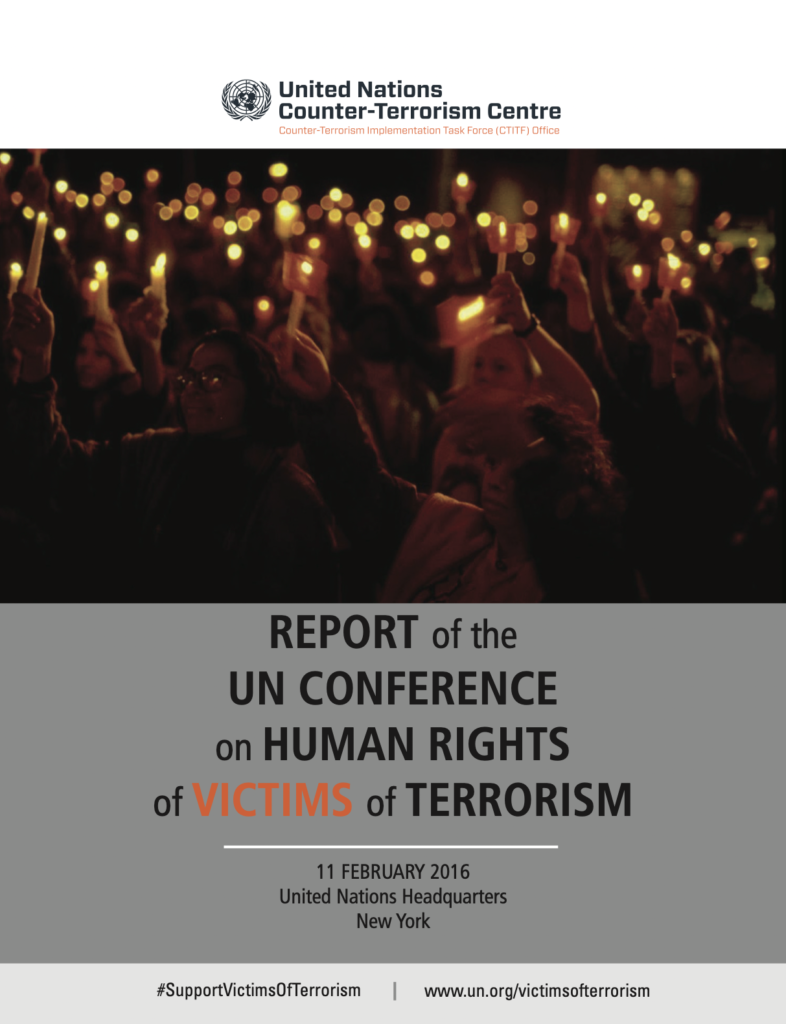Terrorism poses a challenging problem for democracies. To protect those they serve, democratic governments must craft effective counter-terrorism policies without misjudging the threat and alienating minority communities. Counter-terrorism is an urgent discipline that requires speed, and yet the conflict it seeks to prevent is likely to be made much worse if governments misjudge their response. When democratic governments react in ill-judged and ill-coordinated ways, society becomes less inclusive and more divided.

Terrorism is always about the deliberate creation of victims, but such victims are frequently seen as mere by-products of atrocity. As a result, victims’ own perspectives and reactions constitute a subject area that remains ‘fundamentally under-researched’. Governments have tended to remain relatively insensitive to the specific needs of victims of terrorism.
The Handa Centre for the Study of Terrorism and Political Violence (CSTPV) at St Andrews is one of the pioneers of terrorism studies, with a long history of using its research to improve government responses to terrorism and their support of its victims. Since 2011, Drs Javier Argomaniz and Orla Lynch have pioneered research that places victims squarely at the very centre of debates on terrorism, highlighting that supporting terror victims is an essential component of effective counterterrorism. Their research finds that the needs of victims are both private (for instance medical, psychological, and financial) and public (including visibility, recognition, truth, and justice). Victims’ needs are not static but evolve over the course of lifecycles and in response to wider changing contexts. Furthermore, they may remain ripe for exploitation; such grievances, if unresolved, can become, in turn, socially destabilizing. Democracies neglect victims’ needs at their peril; yesterday’s victims may become tomorrow’s perpetrators.
CSTPV research has underscored the importance of including victims in counterterror policies and increasing state capacity to support their specific needs. CSTPV research findings have also emphasized the broader need for capacity building across government ministries and departments to coordinate responses to terrorism and prevent hasty and overly militaristic reactions. These research findings have contributed to both international and national capacity building and shaped best practices in victim support and interdepartmental coordination. Between 2017 and 2018, international organizations—including the United Nations Office of Counter-Terrorism (UNCCT), the European Union, and the Council of Europe—launched new programmes supporting victims of terrorism that adopted CSTPV research findings as best practices. These include bespoke policies for assisting victims in navigating the intricacies of their country’s unique justice system.
The Centre has found similar influence at the United Nations, shaping the development of its victim support strategies. In February 2016, Argomaniz was invited by the United Nations Office of Counter-Terrorism (UNOCT) to speak on how ‘lessons from the Spanish experience can be applied to other contexts’, a reference to his identification of Spain as a country with “one of the most advanced systems of support for victims of terrorism”. Key lessons that Argomaniz presented from his research were that victims of terrorism can face multiple social and psychological barriers in navigating the criminal justice system and that bespoke policies, therefore, are needed to support them. In the wake of the February 2016 conference, a United Nations Counterterrorism Centre report incorporated Argomaniz’s recommendation to extend official recognition of the vital role that victims’ associations can play during trial proceedings, both in advocacy and through accompaniment schemes.
In April 2020, the UN Secretary-General in reporting on progress to support Member States in assisting victims of terrorism, stressed the importance of “an all-of-society approach, including the involvement of civil society organizations, particularly victims’ advocate groups and associations”. Specific support measures that had been advocated by Argomaniz were now explicitly held up as Good Practice to be emulated.
CSTPV research has raised awareness of terrorist victims’ needs across the European Commission and Parliament and the Council of Europe. It directly informed best practice reports on Protecting and Supporting Victims of Terrorism produced by both the European Parliament in 2017, and the Council of Europe in 2018. Research by Lynch and Argomaniz is referenced more often in the latter report than research by any other academic, informing the Rapporteur’s understanding of the centrality of the victimization process to terrorism; the distinctiveness of victim’s experiences from those who have suffered from other violent crimes; the ‘clear strategic role’ that victims’ organization can play in counter- terrorism; and the importance of looking to ‘advanced policies’ developed by Spain.
The School of International Relations is home to world-leading research across multiple areas, however one of its most impactful contributions has been its development of terrorism studies. This work is exemplified by the CSTPV. By shaping best practice both nationally and internationally, the Centre has used its prominence in the field to advocate for better treatment of terrorism victims – a development that promises not only to reduce the suffering of victims today, but also to break a cycle of neglect that can foster tomorrow’s perpetrators.


